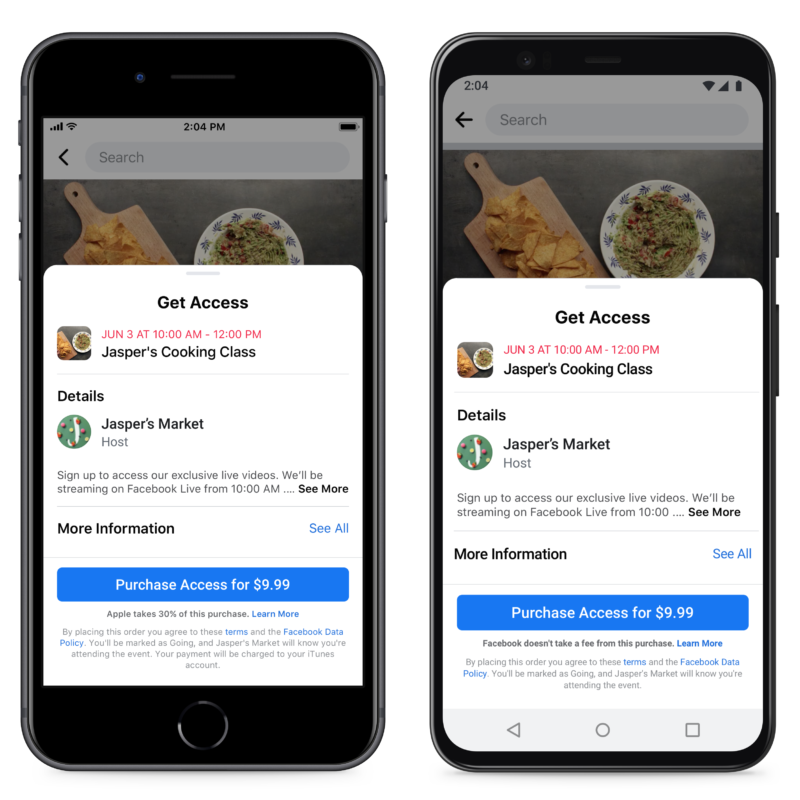

reader comments
349 with 184 posters participating
Apple nixed a message in the Facebook app for iOS warning users that Apple would take 30 percent of event payments, Facebook says.
Facebook announced a new feature for paid online events earlier this month. It allows small businesses to host virtual cooking classes, workout sessions, happy hours, and other events and charge people to participate.
In its announcement, Facebook said it was not taking a cut of customers’ payments. That means that on Android, “small businesses will keep 100% of the revenue they generate,” Facebook says. But the story was different on iOS thanks to Apple’s 30-percent cut of in-app purchases.
The screenshot above shows how the social media giant wanted to alert users to the 30-percent charge. The iOS version of the app is at the left. Below the “Purchase” button it says, “Apple takes 30% of this purchase.”
But Facebook says Apple forced the company to delete the notice, dubbing it a violation of the App Store’s policy against showing “irrelevant” information to users.
Apple’s rules state that an app developer shouldn’t “include irrelevant information, including but not limited to information about Apple or the development process.”
Facebook says it disagrees with this policy. “We of course do think this is relevant information and are still hoping to make that information available in the app experience,” a spokesperson told Ars by email. “Now more than ever, we should have the option to help people understand where money they intend for small businesses actually goes.”
It’s the latest example of major tech companies chafing under Apple’s restrictive app store rules—and especially its demand for 30 percent of app makers’ revenues. Earlier this month, Epic sued Apple, arguing that its 30-percent take of in-app payments violated antitrust law.
In June, Apple attracted criticism after rejecting the email app Hey. The email provider had refused to implement in-app payments in its iOS app, requiring users to subscribe on Hey’s website instead. Apple partially backed down after an uproar.


